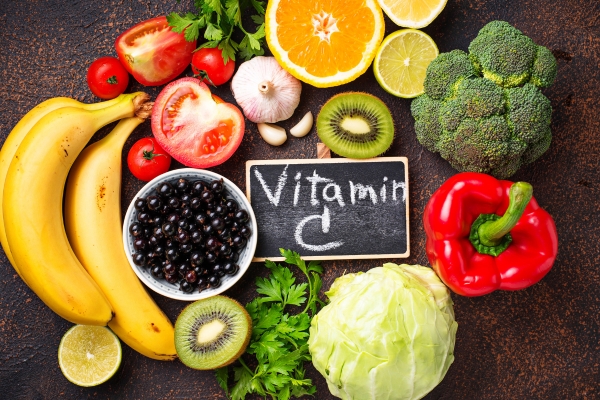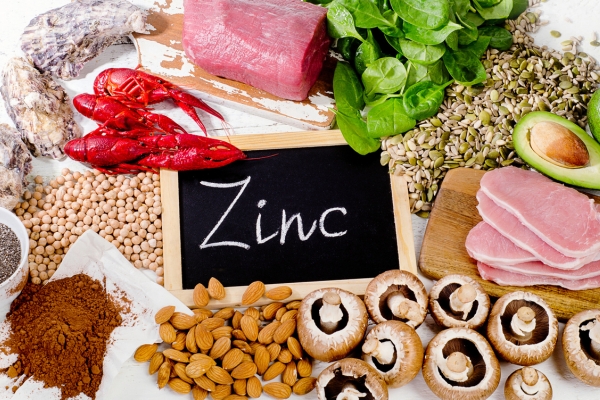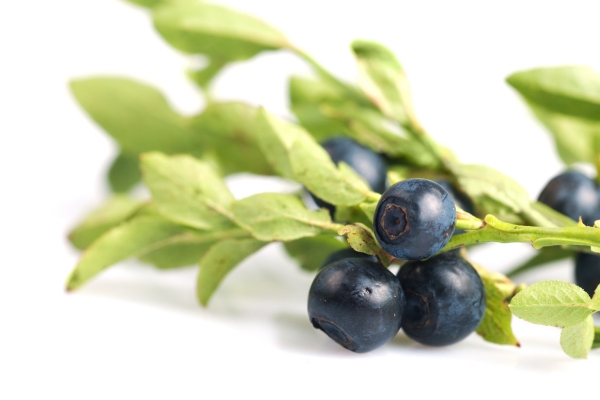Are you slowly losing your vision without even realizing it?
Many of us assume that deteriorating eyesight is just an inevitable part of aging, but what if that’s not the whole truth?
While macular degeneration, cataracts, and dry eyes are common complaints among older adults, they’re not necessarily unavoidable.
What if we told you that popping the right supplements could help protect your vision as you age—possibly even reverse some of the damage already done?
The truth is, you have more control over your eye health than you’ve been led to believe.
Supplements aren’t just another trend; they could be the key to keeping your eyes sharp and your vision clear for years to come.
Ready to see the possibilities?
Let’s dive into the specific nutrients and supplements that can help you maintain and even improve your eye health.

Key Nutrients for Eye Health
When it comes to preserving your vision, not all nutrients are created equal.
Certain vitamins, minerals, and antioxidants have been proven to offer powerful protection against age-related eye problems like macular degeneration and cataracts.
These key nutrients can act as a shield for your eyes, reducing damage from harmful light and oxidative stress.
Let’s take a closer look at which supplements can make a real difference in keeping your vision sharp as you age.

Lutein and Zeaxanthin
Lutein and Zeaxanthin are two powerful carotenoids that play a crucial role in maintaining eye health, especially as we age.
Found in high concentrations in the retina, these nutrients act like a natural pair of sunglasses, filtering out harmful blue light and protecting the eyes from oxidative damage.
This is particularly important in preventing age-related macular degeneration (AMD), a leading cause of vision loss in older adults.
While our bodies don’t produce Lutein and Zeaxanthin on their own, they can be obtained through diet.
Natural sources include leafy greens like spinach and kale, as well as yellow and orange vegetables such as corn, carrots, and bell peppers.
However, most people don’t get enough of these nutrients from their diet alone, especially if they don’t consume a lot of fruits and vegetables.
This is where supplementation comes in.
Taking a supplement with Lutein and Zeaxanthin can help ensure you’re getting adequate amounts to protect your vision.
Studies have shown that supplementing with these carotenoids can not only reduce the risk of developing AMD but also improve visual performance, contrast sensitivity, and glare recovery. [1] [2]

Omega-3 Fatty Acids
Omega-3 fatty acids are essential fats that are known for their anti-inflammatory properties, which help prevent and alleviate dry eyes by supporting the tear film’s natural oil layer.
Additionally, omega-3s reduce the risk of age-related macular degeneration (AMD), a leading cause of vision loss in older adults, by protecting retinal cells from damage.
For optimal eye health benefits, look for a high-quality fish oil supplement rich in EPA and DHA.
Studies suggest a daily dose of 1,000 to 2,000 mg of combined EPA and DHA for maintaining eye health.
For those with specific eye conditions, such as dry eye syndrome, higher doses may be recommended, but it’s best to consult with a healthcare professional to determine the ideal amount for your needs. [3]

Vitamin C and E
Vitamin C and E are potent antioxidants that play a vital role in protecting your eyes from damage caused by free radicals—unstable molecules that can harm cells, including those in your eyes.
As we age, our eyes become more susceptible to oxidative stress, which can accelerate the progression of eye diseases like cataracts and macular degeneration.
Supplementing with vitamin C helps maintain the health of blood vessels in the eyes and reduces the risk of developing cataracts by up to 33%, according to several studies.
Meanwhile, vitamin E works by neutralizing free radicals that could otherwise damage the delicate tissues of the eyes, particularly the lens and retina. [4] [5]

Zinc
Zinc is a key mineral that plays a significant role in supporting vision by aiding in the delivery of vitamin A from the liver to the retina. Once there, vitamin A is transformed into melanin, a pigment that helps shield the eyes from damage.
This process is vital for maintaining the health of the retina and supporting clear, sharp vision.
Without adequate zinc, vitamin A can’t reach the retina effectively, leading to vision problems, especially in low-light conditions.
Zinc’s role extends to enhancing night vision and overall eye health.
It aids in the production of melanin, which helps protect the eyes from age-related damage.
Studies have shown that zinc supplementation, especially when combined with antioxidants like vitamins C and E, can significantly reduce the risk of advanced age-related macular degeneration (AMD) and slow its progression. [6]

Vitamin A
Vitamin A is essential for maintaining the health of the cornea, the eye’s clear outer layer.
It helps produce and maintain the eye’s surface tissues, ensuring that the cornea remains smooth and clear, which is crucial for proper vision.
Without sufficient vitamin A, the cornea can become dry and damaged, leading to vision problems and an increased risk of infections.
One of the most critical roles of vitamin A is in preventing night blindness, a condition where it becomes difficult to see in low light or darkness.
This is because vitamin A is a key component of rhodopsin, a protein in your eyes that helps you see in dim light. A deficiency in vitamin A can lead to a decrease in rhodopsin levels, impairing your ability to see at night and making it difficult to adjust to changes in light levels. [7]

Bilberry Extract
Bilberry extract, derived from a small dark-blue fruit similar to blueberries, has long been hailed for its vision-enhancing properties.
Rich in anthocyanins—potent antioxidants that help protect the eyes from oxidative stress—bilberry extract has been shown to improve night vision and reduce eye strain, especially in low-light conditions.
Studies suggest that bilberry extract enhances night vision by improving the regeneration of rhodopsin, the visual pigment needed for the eyes to adapt to darkness and dim light.
This can be particularly beneficial for older adults who often struggle with night driving or adjusting to low-light environments.
Additionally, bilberry extract is known to reduce eye strain and fatigue caused by prolonged exposure to screens or reading in low light, making it a popular supplement for those who experience digital eye strain. [8]

Choosing the Right Eye Health Supplements
Selecting the right supplements for eye health isn’t a one-size-fits-all approach; it requires considering several factors to ensure you’re addressing your specific needs.
Age is a critical consideration—what works for someone in their 40s may not be sufficient for someone in their 70s, as nutrient absorption and eye health concerns differ with age.
For instance, older adults may need higher levels of certain antioxidants like vitamins C and E or omega-3 fatty acids to combat age-related macular degeneration (AMD) and dry eyes more effectively.
Specific eye health conditions also play a role in choosing the best supplements.
Those with a family history of AMD might benefit more from a targeted supplement containing lutein, zeaxanthin, and zinc, while someone dealing with chronic dry eyes may find relief with omega-3 fatty acids.
Additionally, your existing dietary intake matters—if your diet already includes plenty of eye-friendly nutrients from fruits, vegetables, and fish, your supplementation needs may be lower.
Most importantly, always consult with a healthcare provider before starting any new supplement regimen.
They can help you determine the appropriate dosage, ensure no interactions with medications, and provide guidance tailored to your unique health profile.
Taking this personalized approach ensures you get the maximum benefits from your eye health supplements.
References
Nutrients
Mrowicka M, Mrowicki J, Kucharska E, Majsterek I. Lutein and Zeaxanthin and Their Roles in Age-Related Macular Degeneration-Neurodegenerative Disease. Nutrients. 2022 Feb 16;14(4):827. doi: 10.3390/nu14040827. PMID: 35215476; PMCID: PMC8874683.
Nutrients
Zhang AC, Singh S, Craig JP, Downie LE. Omega-3 Fatty Acids and Eye Health: Opinions and Self-Reported Practice Behaviors of Optometrists in Australia and New Zealand. Nutrients. 2020 Apr 22;12(4):1179. doi: 10.3390/nu12041179. PMID: 32331489; PMCID: PMC7230711.
The Cureus Journal of Medical Science
Murkey SP, Agarwal A, Pandit P, Kumar S, Jaiswal A. Unveiling the Spectrum of Ophthalmic Manifestations in Nutritional Deficiencies: A Comprehensive Review. Cureus. 2023 Dec 11;15(12):e50311. doi: 10.7759/cureus.50311. PMID: 38205491; PMCID: PMC10777438.
Frontiers in Neuroscience
Edwards G, Olson CG, Euritt CP, Koulen P. Molecular Mechanisms Underlying the Therapeutic Role of Vitamin E in Age-Related Macular Degeneration. Front Neurosci. 2022 May 4;16:890021. doi: 10.3389/fnins.2022.890021. PMID: 35600628; PMCID: PMC9114494.
The Journal of Nutrition
Age-Related Eye Disease Study Research Group. The Age-Related Eye Disease Study: a clinical trial of zinc and antioxidants--Age-Related Eye Disease Study Report No. 2. J Nutr. 2000 May;130(5S Suppl):1516S-9S. doi: 10.1093/jn/130.5.1516S. PMID: 10801969; PMCID: PMC1472633.
Frontiers in Nutrition
Thirunavukarasu AJ, Ross AC, Gilbert RM. Vitamin A, systemic T-cells, and the eye: Focus on degenerative retinal disease. Front Nutr. 2022 Jul 18;9:914457. doi: 10.3389/fnut.2022.914457. PMID: 35923205; PMCID: PMC9339908.
Nutrients
Kosehira M, Machida N, Kitaichi N. A 12-Week-Long Intake of Bilberry Extract (Vaccinium myrtillus L.) Improved Objective Findings of Ciliary Muscle Contraction of the Eye: A Randomized, Double-Blind, Placebo-Controlled, Parallel-Group Comparison Trial. Nutrients. 2020 Feb 25;12(3):600. doi: 10.3390/nu12030600. PMID: 32106548; PMCID: PMC7146147.

